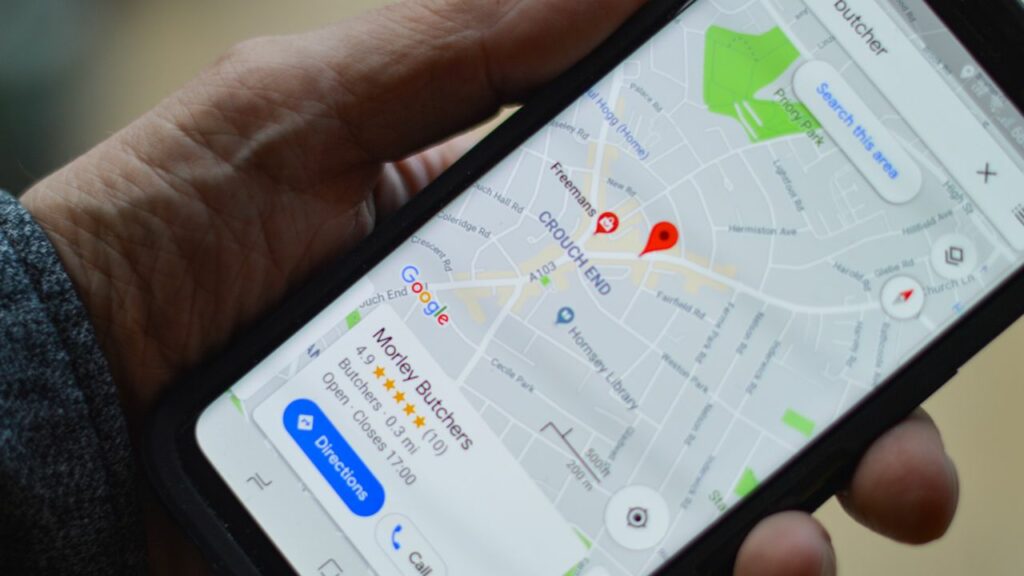SEO Dublin: Top Strategies for Boosting Your Online Visibility
As a business owner in Dublin, you’ll likely know that maintaining a strong online presence is crucial for success, that is why hiring the right SEO agency in Dublin is important. One key component to achieving this is by implementing a robust SEO (search engine optimisation) strategy. With the right approach, your website can rank higher on search engine results pages, driving organic traffic and boosting your brand visibility.
To begin your journey in mastering SEO for your Dublin-based business, it’s essential to understand the basic principles and best practices. This includes optimising your website’s content for target keywords, refining your site structure, and building a trustworthy backlink profile.
Each of these elements is crucial in achieving better search rankings and attracting more customers. Moreover, staying informed about the latest SEO trends and Google algorithm updates is vital. As search engines continually evolve, so too must your strategies. By adapting and refining your approach based on current best practices, you’ll ensure your Dublin business remains competitive online and enjoys continued growth in the digital space.
SEO Dublin: Overview

Market Landscape
In Dublin, the SEO market is thriving and competitive. As a business in this city, you’re aware of the importance of ranking high on search engines. Therefore, employing effective strategies is essential to stay afloat in this digital landscape. Among the available services, a wide range of expertise exists, from specialists in local SEO to those focused on global businesses. In this environment, you’ll find an ideal partner to meet your SEO requirements.
On-Page SEO Factors
Title Tags
When optimising your website for SEO, it’s essential to pay attention to your title tags. Ensure your title tags are unique for each page and include your target keywords. They should be concise and accurately describe the content of the page. Remember that title tags play a crucial role in search engine rankings and click-through rates.
Meta Descriptions
Meta descriptions are equally important as they provide a brief summary of a page’s content. Although they don’t directly impact rankings, well-written meta descriptions can boost your click-through rates. Include your target keywords and craft a compelling description that entices users to click on your link.
URL Structure
A well-structured URL helps both search engines and users understand the content of a page. Keep your URLs clean and straightforward, avoiding unnecessary parameters or characters. Use hyphens to separate words and make sure your primary keywords are included in the URL.
Header Tags
Organise your content using header tags such as H1, H2, and H3. This allows search engines to understand the structure and hierarchy of your content. Incorporate relevant keywords into these tags, making sure to prioritise primary keywords in H1 and secondary ones in H2 or H3 tags.
Keywords
Keyword research is the foundation of your on-page SEO efforts. Identify relevant and high-traffic keywords that your target audience uses when searching for your products or services. Use tools such as Google Keyword Planner or Ahrefs to find the best keywords. Incorporate these keywords naturally into your content, title tags, meta descriptions, and URL structure to increase your visibility.
Content
Quality content is the heart of your on-page SEO strategy. Ensure your content is well-written, informative, and addresses the needs of your audience. Use your target keywords naturally throughout the content, but avoid keyword stuffing. Break up your text into easy-to-read paragraphs and use formatting techniques like bullet points or tables when necessary, to enhance user experience.
Remember to keep it brief, use a professional tone, and avoid making exaggerated claims when optimising your website’s on-page SEO factors.
Off-Page SEO Factors
Backlinks
Building high-quality backlinks is essential for your website’s success. You should focus on obtaining links from authoritative websites within your industry. This not only helps in boosting your search engine rankings but also increases your credibility. To acquire valuable backlinks, you can:
- Create engaging, shareable content
- Establish relationships with industry influencers
- Participate in guest blogging on relevant websites
- Utilise broken link building strategies
Remember to monitor your backlink profile using tools like Google Search Console or Ahrefs to ensure that harmful or spammy links are not affecting your site’s performance.
Local Citations
Local citations enhance your website’s visibility in local searches. They consist of your company’s name, address, and phone number (NAP). To improve local SEO, ensure that your NAP is consistent across various business directories, review sites, and social media platforms. Some strategies to boost your local citations are:
- Register your business on Google My Business
- Submit your NAP to well-known directories like Yelp and Foursquare
- Encourage customers to leave reviews and ratings online
- Keep your information updated across all platforms
Social Signals
While social signals may not have a direct impact on search engine rankings, they can increase your website’s online visibility and attract more traffic. Social media engagement such as likes, shares, and comments demonstrates that users find your content valuable. So, be sure to:
- Share your content on various social media platforms
- Encourage user interaction by posing questions and prompting discussions
- Respond to comments and messages regularly
- Utilise relevant hashtags and tag influencers in your posts
By implementing these off-page SEO techniques, you’ll be well on your way to improving your website’s performance and increasing its visibility in search results.
Technical SEO Matters
Mobile Friendliness
In the world of digital marketing, ensuring your website is mobile-friendly has become more critical than ever. As users increasingly turn to their smartphones and tablets to browse the internet, it’s essential that your website caters to these devices. To do this, implement responsive web design and avoid using software like Flash that may not work on mobile devices. Additionally, ensure that buttons and links are easy to tap, and text is readable on small screens.
Site Speed
Site speed is another crucial factor in technical SEO. A fast-loading website provides an excellent user experience, while slow sites can frustrate visitors and lead to higher bounce rates. Prioritise optimising your website’s speed by compressing images, minifying code, and making use of browser caching. It’s also a good idea to consider employing a content delivery network (CDN) to reduce latency and improve your site’s performance for users across different geographical locations.
Sitemap
A well-structured sitemap offers search engines a clear roadmap to your website’s content. This makes it easier for crawlers to index and rank your pages, ultimately improving their visibility in search engine results pages (SERPs). To create an effective sitemap, include all essential URLs of your website and update it regularly to reflect any changes, such as new pages or removed content. Using XML, you can create a sitemap file and submit it to Google via the Google Search Console, ensuring your site’s latest updates are indexed promptly.
Measuring Success

Google Analytics
When evaluating your SEO Dublin efforts, it’s crucial to track your progress using tools like Google Analytics. This powerful tool enables you to understand how users interact with your website and acquire traffic.
Keep an eye on the following metrics to assess your SEO success:
- Organic traffic: The number of users visiting your site from search engine results.
- Bounce rate: The percentage of users who leave your site without interacting further.
- Average session duration: The average amount of time users spend on your site.
- Pages per session: The average number of pages users visit during a single session.
By monitoring these metrics, you can identify areas of improvement and fine-tune your SEO strategies.
Keyword Ranking Changes
Another critical aspect of measuring your SEO success is tracking changes in keyword rankings. Keep track of the rankings for the target keywords relevant to your Dublin-based business. You can use tools like Google Search Console or ranking trackers to accomplish this.
Evaluate the following factors related to keyword rankings:
- Ranking improvements: Ideally, your target keywords should be rising in the search engine results pages (SERPs).
- High-ranking keywords: Aim to have your target keywords appear on the first page of search results, as this is where the majority of users click.
- Changes in search volume: Your chosen keywords’ search volume might change over time. Ensure your keywords remain relevant and adapt your strategies accordingly.
It’s essential to continuously monitor keyword rankings and make data-driven decisions to refine your SEO Dublin efforts.
SEO Dublin Case Studies
E-commerce Websites

When optimising your e-commerce website or e-commerce product pages, it’s essential to analyse the on-page and off-page SEO factors that impact your site’s performance. In case studies of successful SEO Dublin strategies, numerous e-commerce websites experienced significant improvements in their organic search rankings and overall online visibility.
For example, consider an online clothing store that implemented SEO techniques, such as keyword optimisation and backlinks from reputable sources. As a result, their organic traffic increased by 50%, and their website saw an 80% improvement in conversions. Another case emphasised the importance of site speed and user experience as key factors in boosting search engine rankings. After making site improvements and optimising their site architecture, their site’s bounce rate decreased by 30%.
Business Websites
SEO Dublin strategies are also beneficial for small to medium-sized businesses in various industries. In one case study, a local restaurant implemented local SEO efforts, including optimising their Google My Business profile and building consistent citations. These efforts helped their website rank on the first page of Google for important local search queries, attracting more customers and increasing their bookings by 70%.
Another case study highlighted the importance of high-quality, optimised content in improving a business website’s search engine rankings. A professional services firm created and regularly updated their blog with informative, keyword-rich articles that catered to their target audience’s needs. As a result, they experienced a 100% increase in organic traffic, which led to an influx in potential clients and a higher conversion rate.
In summary, SEO Dublin case studies demonstrate the importance of implementing a well-rounded SEO strategy tailored to your website’s specific needs. By focusing on optimisations such as keywords, backlinks, site speed, and high-quality content, you can improve your site’s performance and ultimately achieve better results in organic search rankings.
In the banking sector, SEO is equally essential. Banks, by effectively optimizing their online service pages and utilizing relevant financial keywords, can significantly enhance their visibility to potential customers. This not only aids in driving online traffic but also establishes a strong online presence in the competitive financial market.
Conclusion
In your journey to improve SEO for your Dublin-based business, it’s essential to consider several factors. Focusing on keyword research, optimising your website, and building quality backlinks are crucial components for boosting your online presence.
Developing a thought-out content strategy can go a long way in improving your website’s search engine ranking. Remember, producing valuable, high-quality content relevant to your target audience will help you maintain a strong online presence.
Remember to track your progress and make necessary adjustments to your strategies. This way, you can ensure continual growth and improvement. Additionally, monitoring competitors can offer valuable insights and help you stay ahead in the ever-changing landscape of SEO.
By following a meticulous approach to your SEO efforts and staying up to date with industry trends, you should see your business’s online visibility and search engine ranking improve over time. This, in turn, will help you achieve better results and drive more traffic towards your Dublin-based business.